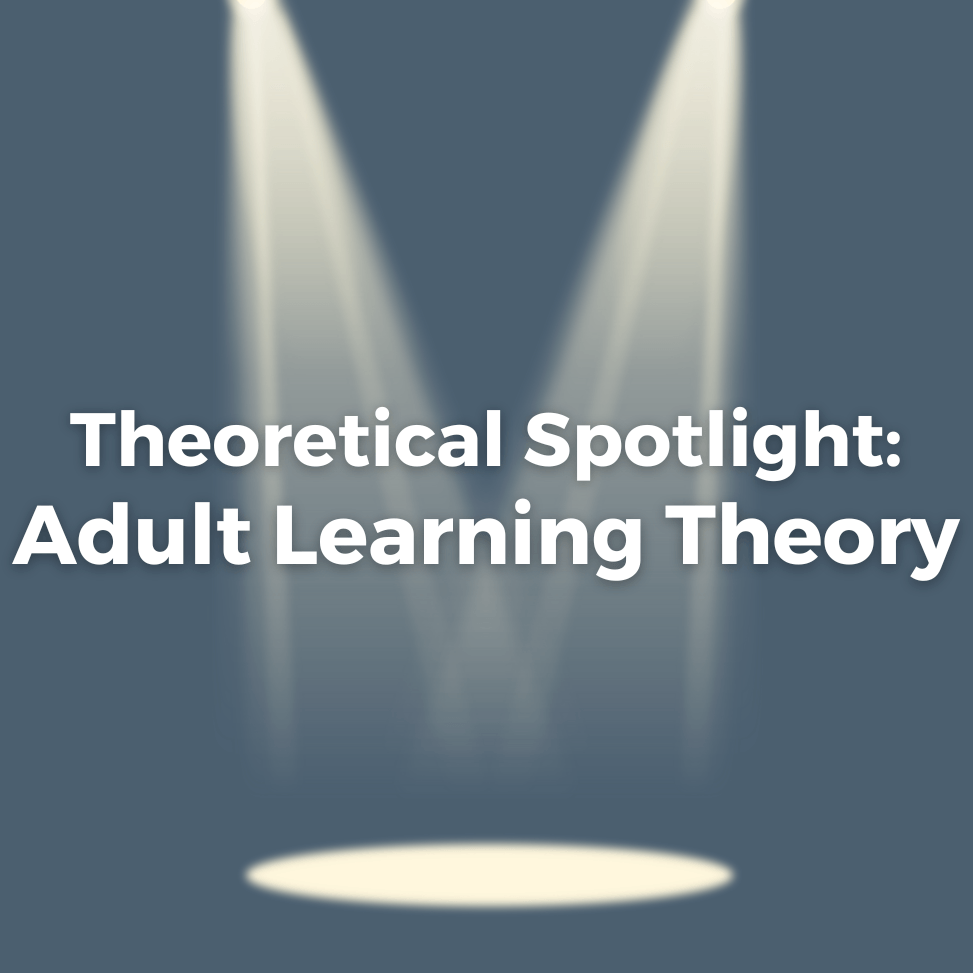Theoretical Spotlight: Adult Learning Theory
A common area of struggle and confusion for students working on their dissertations is the theoretical framework. In this blog series, we cover the most popular theories we come across in our work with dissertation students. Please be aware that these are merely theory overviews and are in no way all-encompassing. Hopefully, these overviews will help guide you in your dissertation by giving you some familiarity with major theories.
Adult Learning Theory
Adult learning theory helps explain how adults learn, how they acquire new knowledge and skills, and how to facilitate their learning in effective ways. The theory holds that adults have unique learning needs and preferences that differ from those of children. Understanding these needs is crucial for creating effective educational programs and experiences for adults.
Adult learning theory emphasizes the importance of self-directed learning, experiential learning, and the relevance of learning to the learner’s life and goals. It also recognizes that adults come to the learning process with a wealth of prior knowledge and experience. They can leverage this to enhance their learning.
Key Principles of Adult Learning
One of the key principles of this theory is that adults are motivated to learn when they perceive a need or desire to do so. This means that effective educational programs must be designed to appeal to the learner’s interests and goals. As well as provide clear and relevant learning objectives. Another important principle is that adults learn best when they are actively engaged in the learning process. This means that educational programs must provide opportunities for learners to interact with the material, practice new skills, and receive feedback on their progress.
Experiential Learning
Experiential learning is another key component of adult learning theory. This approach emphasizes the importance of learning through experience. It recognizes that adults learn best when they can apply their knowledge and skills to real-world situations.
The theory of adult learning has evolved over time, with many different scholars and practitioners contributing to its development. Some of the most influential figures in this field include Malcolm Knowles, Jack Mezirow, and David Kolb, among others.
Influential Figures
One of the most influential figures in the field of adult learning is Malcolm Knowles. He developed a set of principles for adult learning known as “andragogy.” According to Knowles (1980), adult learners are self-directed, have a wealth of prior experience and knowledge, and are motivated to learn when they perceive a need to do so. Andragogy emphasizes the importance of creating a supportive and collaborative learning environment; it also encourages adult learners to take an active role in their own learning.
Another influential figure in the field of adult learning is Jack Mezirow, who developed the theory of transformative learning. This approach emphasizes the importance of critically reflecting on one’s own assumptions and beliefs; it also holds that adults can experience profound changes in their understanding of the world through the process of learning. Another key figure in the field of adult learning is David Kolb, known for his work on experiential learning. Kolb (1984) emphasized the importance of learning through experience. Kolb also suggested that adults learn best when they reflect on their experiences and apply their learning to new situations.
Additional Resources:
Theoretical or Conceptual Framework? What’s the Difference and Which One Should You Use?
How to Begin Writing your Theoretical Framework

We work with graduate students every day and know what it takes to get your research approved.
- Address committee feedback
- Roadmap to completion
- Understand your needs and timeframe

If you’re like others, you’ve invested a lot of time and money developing your dissertation or project research. Finish strong by learning how our dissertation specialists support your efforts to cross the finish line.
